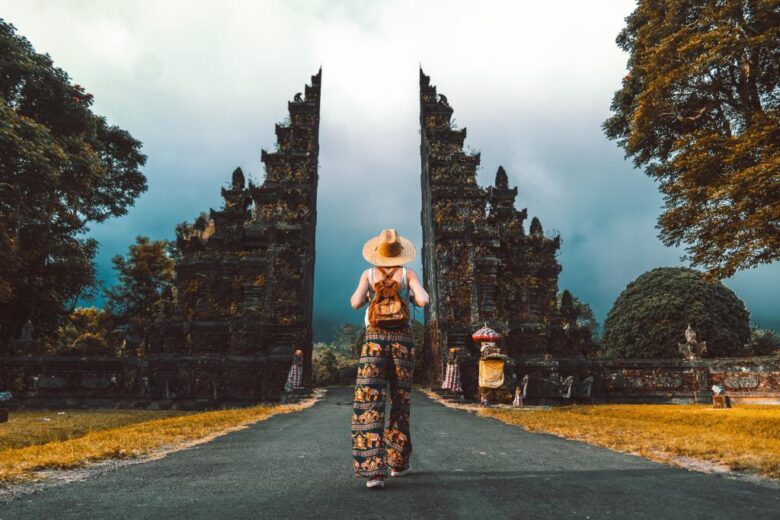Cultural travel goes beyond going to destinations to just see and experience; it’s about establishing a connection with the culture, people and history of the area you’re visiting. The process of planning for such travel can be both thrilling and overwhelming because it requires you to leave your comfortable zone and get immersed in new ways of living. If planned with care, a trip to the cultural can be rewarding by allowing you to create lasting memories and broaden your view of the world. No matter if you’re a veteran traveler or planning your very first trip to a cultural destination this guide will to ensure that your travel plans are rooted in purpose, motivation, and respect for each other.
Understanding Cultural Immersion
Immersion means being fully immersed in a culture and not just watching it from afar. It involves interacting with the local culture and living, from the food they eat to the holidays that they observe. This kind of trip requires you to let go of assumptions and go into the experience with an open-minded attitude. Culture immersion will ask questions of you. Are you able to listen before speaking? Do you have the ability to tolerate differences without judging? Engaging in your travels with curiosity will help you understand the distinctiveness of a culture, but also appreciate the common humanity that unites us all. In a complete immersion in your travels, you can allow for personal development and the ability to communicate with others.
Research and Preparation
An enjoyable cultural trip typically begins with thorough research. Before packing your bags, you should spend some time researching your destination’s history, culture values, beliefs, and social customs. Documentaries, guides and blogs written by local writers can help you lay the foundation for a more educated travel experience. Being familiar with a few of the most important phrases spoken in the local dialect will go a long way in breaking down the first barriers that separate you from the local community. In addition, a thorough study of local celebrations, rituals and events that are that are on the calendar of events will aid in planning your trip to be able to enjoy meaningful experiences. Don’t forget, preparation is not all about being an expert, it’s making sure you are aware of your role as a guest.
Respecting Local Customs and Traditions
Each society has its own set of social norms and observing them is essential to have a memorable journey. Simple actions, such as wearing appropriate attire for a religious ceremony as well as greeting your elders an normal manner, prove that you are a fan of the traditions of your community. Even if you don’t comprehend certain customs, observing these practices shows respect and humility. Making the effort to learn the cultural “rules” beforehand prevents accidental offending and makes you appear as a considerate guest. For instance, in some societies, tipping is considered rude, but in other cultures, it’s a common usage. Small gestures like this make huge difference in the process of building confidence and trust with locals.
Engagement with local Communities
Engaging with those who reside in your area is the essence of culture immersion. Find opportunities to engage with the locals through meaningful interactions. This could mean taking an cooking class in order to master the art of making traditional dishes, or participating in a gathering of the community, or even establishing conversations with the shopkeepers or guides. When you engage, do so with genuine curiosity and ask them open-ended questions. Locals usually have interesting stories to tell, providing insight into their lives which you can’t get in a book. By establishing these relationships, you will not only get a better understanding of the local culture but also aid in the sharing of thoughts.
Embracing the Unexpected
Cultural travel doesn’t always go as planned, but that’s the beauty of it. Being flexible and embracing unexpected opportunities often lead to unforgettable and satisfying moments. If it’s a spontaneous invitation to attend an event for weddings or a shift in the schedule due to weather conditions in your area being unpredictable, flexibility lets you take advantage of the spontaneity that comes with living in a different environment. Instead of adhering to a strict plan, use every minute as a learning chance. Sometimes being confused in an overcrowded marketplace or navigating a wrong way in a city that isn’t yours could reveal treasures that you didn’t expect to discover.
Responsible and Sustainable Cultural Travel
If you’re a cultural tourist It is crucial to consider the impact your presence will have on your community. Help local economies by selecting local hotels, eating in local restaurants and buying handmade items directly from the artisans instead of mass-produced items. Be aware of the importance of protecting the natural beauty and historical sites by adhering to established guidelines, including not taking photos that disrupt the natural environment or leaving no footprints behind. In addition, you should be aware of the dangers of overtourism and discover ways to limit the footprint you leave behind. Responsible travel will ensure that the next generations will be able to experience these treasures of culture, and at the same time, respect the people and the destinations that will welcome you.
FAQs
1. What is the definition of the concept of cultural travel?
Cultural travel is about engaging with the culture, traditions and cultural heritage of a particular destination. It is about making connections, rather than ticking items off an itinerary.
2. How can I prepare for an immersion into a culture?
Begin by looking up the background, culture, and traditions of the destination. Understanding the basic terms in the local language and gaining an understanding of the cultural norms will aid in connecting more deeply with your local community.
3. How can I determine the most effective method to make sure I’m being respectful when traveling?
Always engage with persons with curiosity, respect and respect. Be respectful of the local customs, dress appropriately and observe sacred sites and rituals to show your respect for their culture.
4. Do I need to plan every aspect of my trip to the cultural center?
While planning is important allow for spontaneity. Some of the most enjoyable cultural experiences are triggered by unexpected events or random encounters.
5.What can I do to be a responsible tourist?
Reduce your environmental impact by donating to locally-owned businesses. Be conscious of your footprint on the environment, and learning about the dangers of overtourism in order to stay away from contributing to it.




